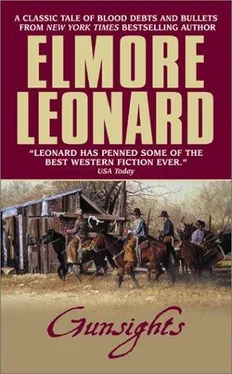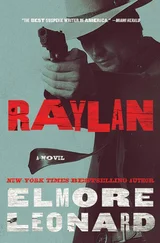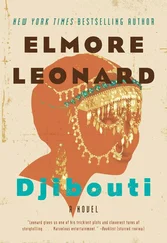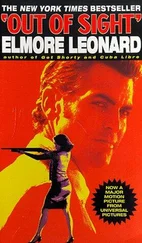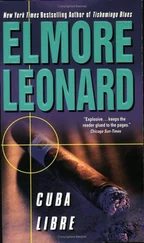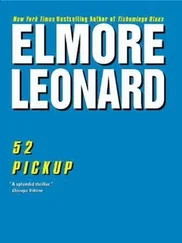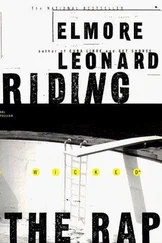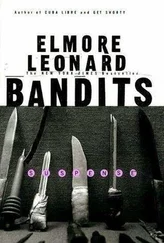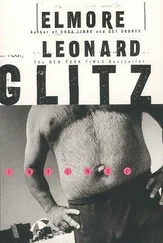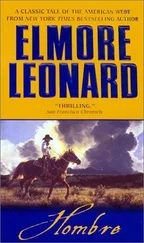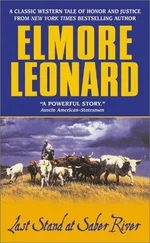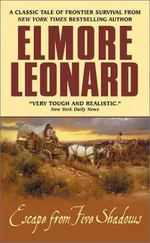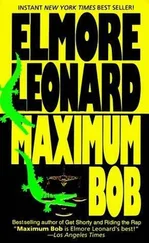“Still riding the fence, huh?”
Ruben Vega said, “Well, you got a man killed.”
“Three'd be better,” Sundeen said, “but one's enough to inspire them.”
It didn't take much to push the farmers out of the rocks. They reloaded and got off a volley, hitting nothing, then fell back from the steady fire of the Winchester repeaters, some of them running, others making their way back to Armando Duro's place where they would be forced to make a stand.
Sundeen and his people circled to high ground and found good cover in a fairly deep wash rimmed with brush. From here they looked down on Armando's house and yard: a whitewashed adobe with a roof of red clay tiles that had come from an old church in Tucson, a flower garden, a latticework covered with green vines, heavy shutters with round gunports over the windows. A snug cottage with thick walls up here in the lonesome.
Sundeen said, “Well, we can starve him out or maybe set the place on fire, but we'd never get home for supper, would we?” From a saddlebag he pulled out a towel with Congress Hotel printed on it and thew it to Ruben Vega, saying, “Hey, partner, make yourself useful.”
Tied to a mesquite pole the towel was the truce flag Ruben Vega waved above the brush cover and held high in front of him as he walked down to the yard, unarmed, doing something for his thirty dollars a week.
He called to the house in Spanish, “Do I address Armando Duro?…Look, I have no gun. Will you come out, please, and talk like a gentleman? We have no fight with you. We come to talk and you begin shooting.” He paused. “Before anyone else is injured please come talk to the man sent by the company. He has something important to explain.”
“Say it now,” a voice from the house said.
“I'm not the emissary of the company,” Ruben Vega said. “Mr. Sundeen is the one. He wants to explain the company plan of making this a township…if you would honor us and agree to become the alcalde and administer the office.”
“Where is he?” the voice asked.
“You come out and he'll come out,” Ruben Vega said, beginning to feel relief now, knowing he was almost finished.
There was a long pause, silence, before the voice said again, “Where is he?”
“Up there,” Ruben Vega said, pointing with his truce flag.
“He must come with no weapons. All of them must show themselves with no weapons,” the voice said.
“Of course,” Ruben Vega said, thinking, He's a child; you could offer him candy. As he saw the door open, Ruben Vega began to move away, turning to wave to Sundeen to come down, calling out, “All right…Come with your hands in the air, please!” Looking back at the house, still moving off to the side, he said in Spanish, “Your men come out too, please, everyone without weapons. We meet at this sign of truce and speak as gentlemen,” thinking, Yes, isn't it a nice day and everybody's friends…Smile…but get your old ass out of the way as soon as you can, without hurrying, but move it.
Moon handed the glasses to Bo Catlett and picked up his Sharps rifle from the Y of the cliffrose branch in front of him.
“They all got suits on,” Bo Catlett said, with the field glasses to his face. “Coming with their hands in the air. They surrendering?”
“You see the white flag?” Moon said.
“Man moving out of the way.”
“I saw him do it once before,” Moon said. “Something like this. What would you say's the range?”
From this position, where Moon and Bo Catlett, Red and three of his Mimbres crouched in the outcropping of rock and flowering cliffrose-high up on a slope of scrub pine-they had a long downview of the red-tile postage-stamp roof of the house and the tiny dark figures coming down to the yard, approaching the tiny figures in white coming out of the house.
Bo Catlett continued to study the scene through the field glasses, saying now, “You got…three hundred fifty yards' tween us and them.”
“Close,” Moon said, “but more like four hundred,” and sighted down the barrel of the Sharps. “It looks shorter aiming down.” He lowered the big-bore rifle to adjust the rear sight and put it to his shoulder again to aim, both eyes open.
“Wearing suits,” Bo Catlett was saying. “All dressed up to pay a visit, huh?”
Moon said something in slow Spanish, as though explaining carefully, and the Mimbres raised their Springfields and Spencers. He waited a moment and then said, “Listo?”
The Mimbres were ready. Bo Catlett continued to watch through the glasses.
“The one with the silver belt buckles,” Moon said.
“His holster's empty,” Bo Catlett said. “None of them appear armed.”
“Come up here with their coats on,” Moon said, “account of it's so cold. Only about ninety degrees out. Watch Sundeen, he'll do something. Take off his hat, something to give 'em a sign.”
“Talking,” Bo Catlett said. “Moving around some…Mexicans standing there listening to him, Armando, shit, look at him with his big hat on, arms folded, standing there…Sundeen looking up at the sky now, looking around…looking back at Armando…hey, yelling something…they drawing guns! He going for the Mexican!”
Moon fired.
The Mimbres fired.
The sounds hitting hard and flat in the stillness, echoing…the hard sounds hitting again, almost covering the popping sounds of pistol fire coming from the yard, where tiny dark figures and tiny white figures were left lying on the ground as the lines of figures began to come apart and scatter. The rifles echoed again, cracking the hot air hard, and in a moment the yard was empty but for the figures lying motionless: three dark figures, four white figures. A single white figure was being dragged, carried off by a crowd of dark figures.
Bo Catlett followed them through the glasses until they were out of sight, beyond a rise and a line of brush. He wasn't sure which one they'd dragged off until his gaze inched back to the yard, past the figures lying there, and saw the big Mexican hat on the ground.
“They got Armando,” Bo Catlett said.
C.S. “Buck” Fly, who was a gentleman and had never been known to say an unkind word about anyone, paused and said, “I already shot that rooster.”
“We went to very much trouble to get him,” Ruben Vega said. “Rode all the way up there to talk to him.”
“Is he coming here?” C.S. Fly asked, not wanting to give the Mexican a flat no, but not wanting to take the other Mexican's picture either. The other Mexican, Armando, was impatient and difficult to pose, because he thought he knew everything, including photography. C.S. Fly also had a lot on his mind. His wife was in Tombstone, where business was not too good; he had opened a gallery in Phoenix that wasn't doing much better; there was not much going on here in Sweetmary at the moment; and he was trying to make up his mind whether or not he should run for sheriff of Cochise Country on the Republican ticket next year, as some of his friends were urging him to do. What did he want to take a picture of a pompous, officious Mexican land-granter for?
“You have to bring your picture machine to where he is. I'll show you,” Ruben Vega said.
“Well, as I've mentioned, I already have Armando on file,” Mr. Fly said. “One of him is plenty.”
“But do you have him talking to Mr. Sundeen of the mine company, settling the difference between them, the two sides shaking hands in a picture you can sell to all the newspapers in the country?” Ruben Vega asked.
“No, I don't believe I have that one,” C.S. Fly said. “Where is it they're meeting?”
Ruben Vega told him, a ranch out of town only a few miles, the J-L-Bar, owned by a man named Freels, a neutral ground between the mine and the mountains. Mr. Fly said all right, had his assistant load camera and equipment on a buckboard and they were on their way-heading out LaSalle Street, when the young news reporter Ruben Vega had met before rode up to join them, asking what was going on. Ruben Vega said come on, and asked where the other reporters were. (Sundeen had not said anything this time about keeping reporters away.) The young fellow from Chicago, Maurice Dumas, said they most always took a nap after their noon dinner and that's probably where they were. When he asked where they were going, Ruben Vega told him Mr. Fly was going to take a picture of an important occasion, a meeting between Sundeen and Armando.
Читать дальше
